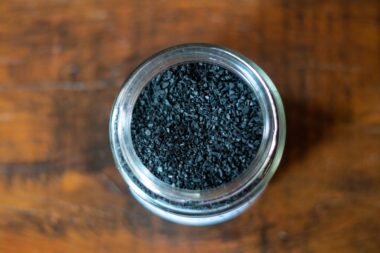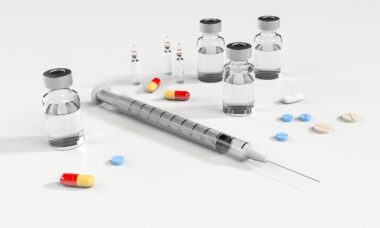When to Seek Immediate Veterinary Care for Suspected Cat Poisoning
Cats often encounter various toxins that can be life-threatening if not addressed promptly. Understanding when to seek immediate veterinary care for a suspected case of poisoning is vital for every cat owner. If you notice your cat exhibiting unusual behaviors such as lethargy, vomiting, or seizures, it’s important to take these signs seriously. These symptoms can indicate potential poisoning. Common household items like plants, chemicals, and foods can be toxic to cats, sometimes leading to severe consequences. Make sure to keep a list of dangerous substances handy, which can help identify what may have affected your pet. In case of poisoning, time is of the essence. It’s crucial to check if your cat has ingested something toxic and to gather information regarding the substance. This can help the veterinarian make informed decisions regarding treatment. If you suspect poisoning, do not delay; contact your vet immediately for proper guidance. Providing your veterinarian with details about the possible source of poison can significantly enhance treatment decisions.
Recognizing the Signs of Poisoning in Cats
Recognizing the early signs of poisoning in cats can be challenging. Symptoms may vary based on the toxin involved but generally include drooling, vomiting, diarrhea, and difficulty breathing. Behavioral changes such as increased agitation, lethargy, or hiding can also be significant indicators of toxicity. Keep a close eye on your feline friend. If your cat has been exposed to any known toxins, watch for these symptoms diligently. In some cases, the effects may not be immediate. Some poisons can take hours or even days to manifest symptoms, making it crucial to maintain vigilance. If your cat shows any signs of distress, don’t hesitate to reach out to your veterinarian for professional advice. Preparing a list of commonly toxic substances can aid in identifying potential exposure. Familiarize yourself with these and keep them out of reach to prevent accidental ingestion. Ensure regular check-ups with your vet, and discuss potential environmental toxins that may exist in your home or yard, enhancing your understanding of cat safety.
Emergency Measures for Cat Poisoning
If you suspect your cat has been poisoned, there are emergency measures you can take. First, try to remain calm; panicking can lead to poor decision-making. Assess the situation and attempt to identify the toxin your cat may have consumed. Check your home for any hazardous substances, and gather the product labels or containers if available. This information will assist the veterinarian in determining the appropriate treatment. If you’ve seen your cat consume something toxic, do not induce vomiting unless instructed by your veterinarian. In some cases, inducing vomiting can worsen the situation, particularly with caustic substances. Instead, call your vet or an emergency animal clinic right away. Sometimes, veterinary staff may give you specific instructions on what to do next while you proceed to the clinic. Remember, timely action could be the difference between a life-saving treatment and a tragic outcome. Always keep numbers for local animal hospitals or emergency clinics saved in your phone for quick access in an emergency.
Common Household Toxins for Cats
A variety of common household items are toxic to cats, making it essential for pet owners to be aware. Some household plants, such as lilies and philodendrons, are particularly dangerous and can lead to organ failure. Additionally, human food items, including chocolate, onions, and garlic, should always be treated with caution. Cleaning products like bleach, detergents, and anti-freeze are also highly toxic to felines and typically should be stored securely out of reach. The ingestion of certain medications, even if designed for humans, can have deadly interactions for pets. Check the formulation of drugs before administration to your pet. Furthermore, some common insecticides and rodenticides can pose serious health risks if ingested by a cat. If you suspect your cat has ingested any toxic substances, it’s critical to act swiftly and contact a veterinarian. Preventing access to these substances can go a long way in ensuring your cat’s safety. Keep potential poisons stored in secure areas and educate guests about substances harmful to your pets.
Important Resources for Cat Owners
Every cat owner should be aware of key resources that can help in case of poisoning. One primary tool is the ASPCA Animal Poison Control Center (APCC), accessible 24/7. This resource provides immediate guidance and support regarding potential poisoning cases. They have professionals trained to address common household toxins and can assist you in determining whether you need urgent care for your cat. Additionally, you can collaborate with your local veterinarian for advice and treatment protocols. It’s also beneficial to have a list of emergency veterinarians at hand, so you know where to go in case of an emergency. Alternatively, cat owners should keep the phone number for the Pet Poison Helpline nearby for 24/7 assistance. They can provide valuable information and support in critical situations. You can improve your understanding of feline health and safety by engaging with online communities and forums where pet owners share experiences and tips. Always keep learning about best practices for your cat’s wellness.
Preventative Measures to Avoid Cat Poisoning
Prevention is the best approach to ensuring your cat’s safety against poisoning. Taking a proactive approach is essential when it comes to the household environment. Start by identifying and removing toxic plants and substances from your home. Educate yourself about what common items can pose a risk to your cat. Moreover, it is crucial to have a secure storage area for all cleaning supplies, medications, and hazardous goods. Always be cautious when guests are in your home, especially if they might bring food for humans that could be harmful to pets. Designate specific areas where your cats are allowed, keeping them away from hazardous locations. Another helpful practice is to discuss your cat’s surroundings and lifestyle with your veterinarian, who may recommend additional measures tailored to your living conditions. Finally, consider creating a dedicated first aid kit for your pet, including items that could help in emergencies. Having all necessary contacts readily available can save vital time in crucial situations and ensure that you are prepared for any poisoning issues.
Conclusion: Reacting to Cat Poisoning
In conclusion, understanding the risks and reactions to cat poisoning is crucial for all pet owners. Knowing when to seek immediate veterinary care can significantly improve your cat’s chances of recovery. Displaying attentiveness towards your pet allows you to respond quickly to signs of distress. Should your feline companion consume a toxic substance or exhibit symptoms of poisoning, contact your veterinarian or an emergency clinic immediately. Maintaining a comprehensive understanding of household toxins, along with proper preventative measures, will drastically reduce risks. Additionally, familiarizing yourself with critical resources, such as poison control, enhances your ability to act decisively during emergencies. If you’ve learned anything, it’s that prevention and preparedness are key. Always keep your living environment safe, secure, and toxin-free. Remember to stay informed about pet health and safety, as this knowledge can save your beloved feline friend. Ensure you’re always prepared by having emergency contacts saved, and don’t forget regular veterinary check-ups to promote overall well-being. With diligence and care, you can create a safe environment for your kitty.
This paragraph needs to be the last one.





